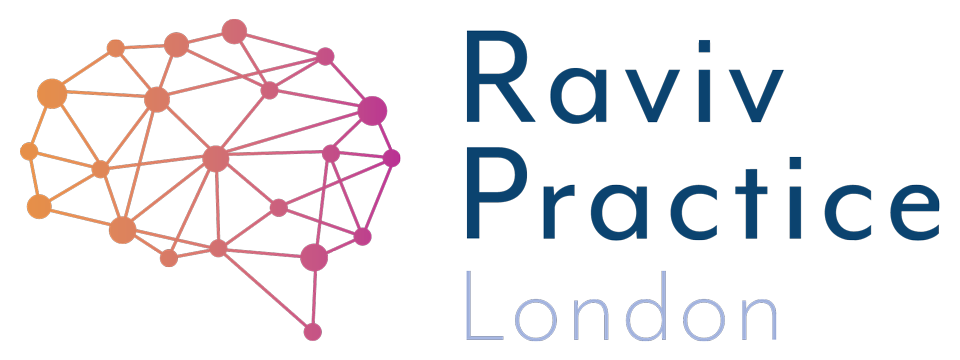Bridget Jones:_Mad About the Boy (an ADHDer?)
Bridget Jones: Mad About the Boy
Back in 2003, I worked in London Bridge, a part of the city that was rapidly becoming trendy, thanks to the Tate Modern and the Globe Theatre. My boss had found a trendy studio space with Thames views, making work feel almost luxurious—almost.
That summer, the area buzzed with excitement. A film crew had taken over Borough Market to shoot scenes for the follow-up to Bridget Jones's Diary. For those of us living and working nearby, it was a thrill.
Helen Fielding created Bridget Jones, the hapless, wine-loving singleton who first appeared in a Telegraph column before making the leap to books and then film. We Brits have practically grown up with Bridget and her relentless quest for true love.
Bridget's world sits firmly in rom-com territory. But watching the latest instalment, Bridget Jones: Mad About the Boy, I didn't see it through the eyes of a thirty-something interior architect. This time, my neurocognitive therapist brain kicked in.
Is Bridget Jones an undiagnosed ADHDer?
The film opens with classic Bridget chaos: She's late, her hair unbrushed, and frantically trying to dress while simultaneously cooking for her kids. She burns the spaghetti and sets off the smoke alarm, and her children—wise beyond their years—step in to salvage the situation.
Eventually, she dashes out the door once the babysitter arrives. Her hair remains unbrushed, not that she seems bothered. In fact, it stays that way for the entire film. Clearly, the writers have cranked up the chaos for comedic effect, and it works—we love to laugh at her antics.
But what about real life?
For people with ADHD, timekeeping isn't a running joke; it's a daily battle. Parenting with ADHD? That's next-level challenging. In the film, when an alpha mum asks if Bridget remembered to bring donations for the summer fair, she responds with a very honest, "Of course," then rummages through her bag and triumphantly produces a pot of hummus and half eaten a pack of rice biscuits. The alpha mum's disappointment is palpable. Bridget thinks it is acceptable to turn up for the school run in her pyjamas and pack only marshmallows for a trip to the Lake District. It is all the work of an ADHD brain.
Comedians and ADHD
Many comedians have been diagnosed with ADHD, from Rory Bremner to Shappi Khorsandi. In Scatter Brain, Shappi writes about her diagnosis in her forties and how it finally helped her make sense of her whirlwind existence. She sums it up beautifully:
"Some brains, through no fault of their own, pack a bag, turn the lights off and run away to the seaside the moment they are meant to be doing homework, paying bills or not putting the cat in the fridge. These are ADHD brains. I have one and believe they are as common as being left-handed, flat-footed or genuinely enjoying anchovies on a pizza.
Undiagnosed Attention Deficit Hyperactivity Disorder made my life a frustrating, maddening rollercoaster. I had very little focus except when I was hyper-focusing (and then it would always be on the wrong things), I made the same mistakes over and over again, regularly burning myself out until I was sobbing. When I finally was diagnosed in my 40s it felt like the lights had been turned on after a lifetime in the dark."
Helen Fielding, has based the story of Bridget Jones on her self. Whilst not a comedian she clearly has comic talent and it made me wonder.
Bridget Jones gets help.
Halfway through the film, Bridget hires a nanny, and suddenly, the chaos disappears. She relaxes with the structure and support in place, and life becomes more manageable.
Yes, it's just a film—a comedy at that—but I couldn't help feeling a pang of sadness. We were all laughing at someone with ADHD, clearly struggling to juggle life and parenthood alone. And what about her kids? Fictional or not, the impact of such chaos on children is worth considering.
But, as with all rom-coms, there's a happy ending. And I exhaled with relief. Bridget's new love interest brings the stability and structure she so desperately needs.
Whether Bridget is an undiagnosed ADHDer or just the queen of calamity, one thing's certain: we'll always root for her.
If you are an adult who is diagnosed with ADHD please do get in touch.
Dyslexia? Dyspraxia? ADHD? ASD? Speech & Language? Developmental Delay? Anxiety?
Is every school day a struggle? As a parent, you may feel exhausted and on this journey alone. Each year you see the gap getting wider. You need to do something - change the approach, help your child learn for themselves, find a way to turn this around - to help while you can - do this NOW. the first step is free.
About the Author
Usha Patel is a Neurocognitive Therapist and Director at Raviv Practice London. Parents searching to help their suspected/neurodiverse child can get evidence-based solutions with results in as little as 8 weeks. Those in search of jargon-free help can get started straight away.


